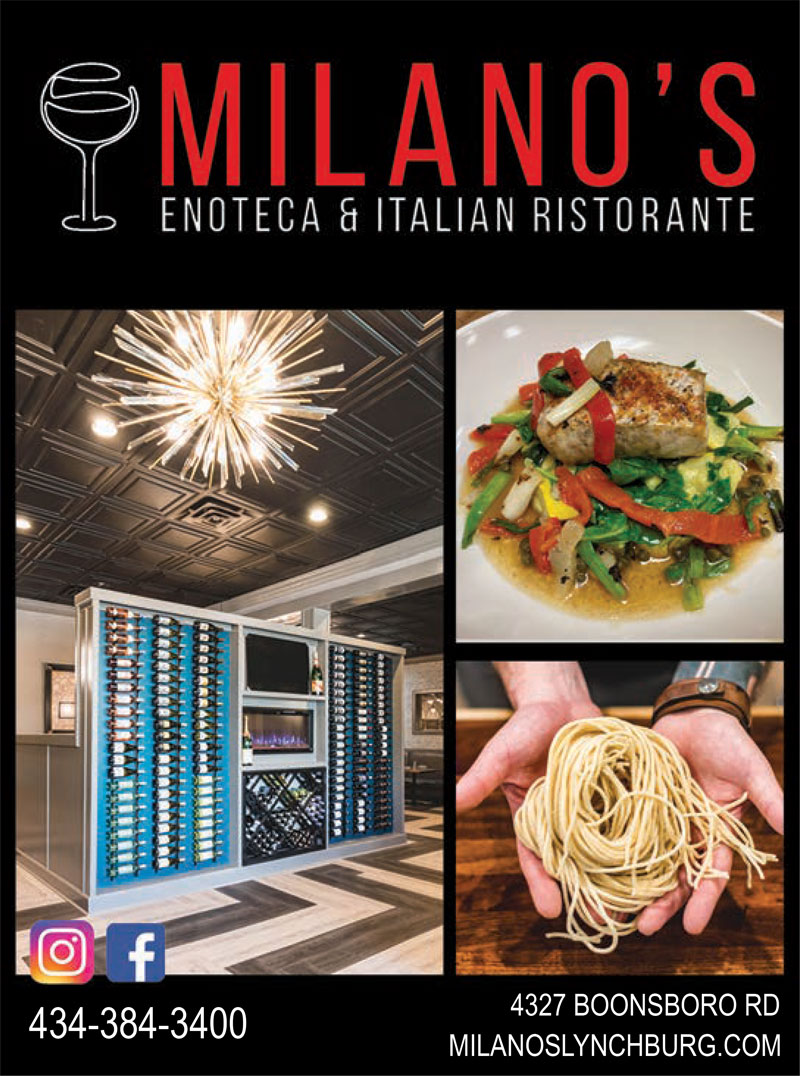WATER WISE

Help Your Landscape Thrive this Summer with a Home Irrigation System
The summer months paired with a dose of global warming have many of us thinking about how to keep our lawns and gardens healthy and hydrated. It can be difficult to keep up with watering as well as know exactly how much water is necessary for grass and plants. A sure way to achieve lush landscapes, and even increase property value, is through efficient home irrigation systems.
‘Smart’ systems
While irrigation has been around for ages, it has definitely come a long way.
Tim Davidson, owner of Automatic Lawn Sprinkler Company in Lynchburg, has been well-versed in irrigation since the 1980s, servicing customers in Lynchburg, Boonsboro and Forest. He says the latest technology is advanced and communicates with satellites to sense when the weather forecast shows rain, so water is not used unnecessarily. Sensors also detect moisture in the ground, ensuring the system never over-waters your lawn.
Installing a system
There are several factors that determine if a property is suitable for an irrigation system – landscape size, soil type, plant types, homeowner preferences and of course budget – but if you’re seeing brown patches of grass or erosion along hillsides, your home is likely a great candidate for an irrigation system.
“You can typically tell when a person has an irrigation system in their yard,” Davidson says. “It really just enhances everything, makes the grass grow better and allows your home to stand out.”
Different types of systems include drip irrigation, sprinkler systems and soaker hoses.
“I’ve seen people try to install a system themselves, but I highly do not recommend it as you likely will not have adequate gallons of water per minute or the correct amount of pressure,” Davidson says.
Automatic Lawn Sprinkler Company uses trenchless technology – a machine that installs pipes without open trenching – which limits the amount of lawn damage during installation. The entire process typically takes three to five days to complete, and costs can range anywhere from $6,000 to $15,000 depending on property size and layout.
“We keep up to date with all of the latest technology, and our systems are Wi-Fi based, which can be controlled through your phone from anywhere in the world, which is nice,” Davidson says. “And we can even control your system from our phones, so we can troubleshoot and diagnose any problems without actually coming out, saving you a service call.”
While most homeowners use county or city water, it is possible to collect your own rainwater for your system.
“We have seen a few people use retention ponds, but it’s very tricky because you need enough gallons per minute to run the system properly,” Davidson says. “It could be fine for a small garden, but I wouldn’t advise it since you would be completely dependent on the rain, which can be unreliable.”
Many people have a separate water meter specifically for their irrigation system. This way, you are not charged for the sewer portion that typically comes along with water usage. The water usage of an irrigation system depends on multiple factors such as the size of the landscape and personal preference but installing one can actually conserve water. For example, if your normal water bill is around $150 per month, you may see an increase of $40 to $50 per month; however, on average, homeowners can expect to use about 30 to 50 percent less water compared to manual watering methods.
Maintaining your system
Irrigation systems are constructed from durable materials and designed to withstand the test of time. But, as with any system, they do require yearly maintenance. In Virginia’s climate, irrigation systems typically operate for six months – April through October – each year. This means units must be winterized as well as turned back on in the spring.
“Homeowners don’t really have to worry about doing any of their own maintenance on these systems,” Davidson says. “We take the extra step to clean and check all of the heads in the spring, which makes them last much longer than most. You can expect them to last 10 to 20+ years because of proper maintenance. We also winterize the systems each year and blow all of the water out of the lines. We provide a lifetime guarantee on our pipes if we do winterize a customer’s system every year.”
On average, maintenance costs around $275 to $300 per year, depending on the size of the landscape and water usage by person.
An irrigation system is an investment, but can yield green returns year after year! ✦
Drip irrigation, home irrigation system, irrigation, rainwater, retention ponds, Soaker hoses, sprinkler systems, trenchless technology, water usage, wi-fi based








